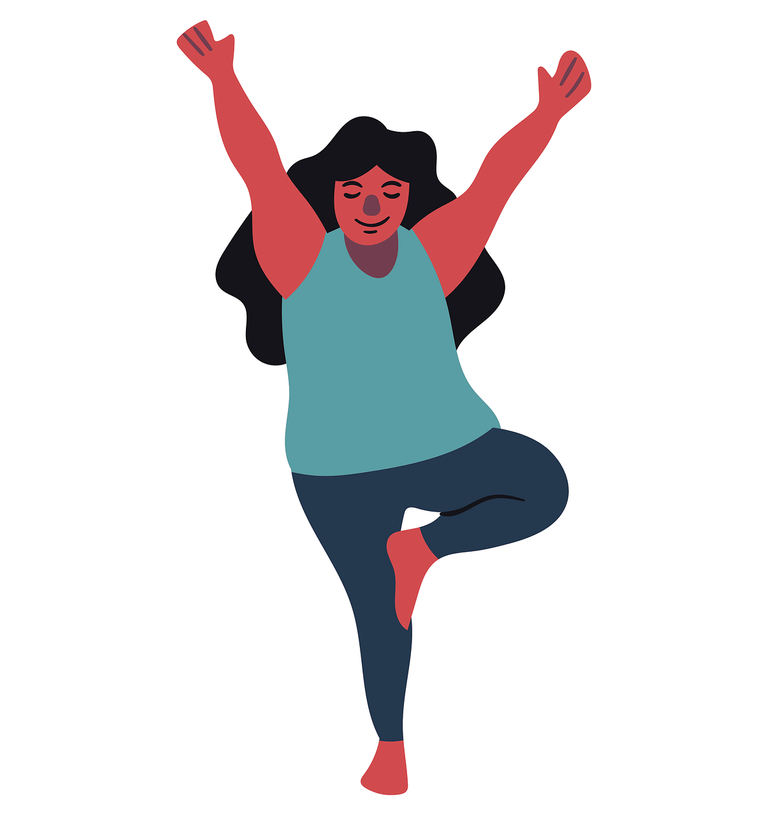BPPV: Exercises, Life-style changes and vestibular rehabilitation
Now previously, for some times now, we have taken a look at BPPV a short form for Benign paroxymal postional vertigo, we have made emphasis on what its actually is, How well and the best way to diagnose for it and also the best course of treatment and also basically the dos and the donts as regards BPPV. Now today we would be looking at some exercises, lifestyle chnages and some vestibular rehabilitation technique for BPPV. So going straight to the point 👇👇
Balance Exercises and Retraining for BPPV
Relieving your BPPV symptoms may also involve balance exercises and retraining for your vestibular system. Your physiotherapist would be able to teach you tailored exercises that focus on your body's natural steadying responses and reactions, including how to control the balance of your head and body movement.
Example Balance Exercises
These are some example balance exercises that can help with BPPV:
Gaze stabilization exercises: This can help to reduce dizziness when you move your gaze. You can go about this by focusing on a stationary object while you move the rest of your body.
Flexibility and strength exercises: You may benefit from doing low-intensity exercise which promote flexibility and strength in the neck area. Your physiotherapist would definitely provide guidance in this area.
Balance stabilization exercises: These can help to reduce dizziness when changes in position occur or during certain movements. You can employ wall for support while standing up or walking in a straight line; or you can stand on one foot with eyes closed, then repeat with the other foot.
Lifestyle Changes and Vestibular Rehab for BPPV Management
When it comes to managing BPPV, lifestyle changes and vestibular rehabilitation are key. Lifestyle changes involve the modification of activities that can worsen symptoms for people with BPPV. This can mean avoiding activities such as prolonged or vigorous head movements and sitting upright in bed after waking up in the morning. In the context of vestibular rehabilitation, you should find a physiotherapist that is trained and experienced in this field to guide you through specific exercises that will help reduce symptoms of BPPV.
These exercises include activities such as:
Head-turning exercise to help with vertigo-induced imbalance
Habituation exercises to help reduce dizziness
Balance training exercises to work on balance deficiencies
Vestibular rehabilitation which focuses on restoring normal inner ear function
Vision exercises with focus on eye–head coordination techniques.
Now you see for this, I mean for the above listed, it is important to discuss with your physiotherapist how frequently you should be doing these exercises in order to get maximum relief from dizziness symptoms. Your physiotherapist may also recommend certain functional rehabilitation moves that would be beneficial for your specific condition in order to optimize your recovery and minimize chances of developing BPPV again.
Now speaking of Personalized Assessment and Treatment a physiotherapist will be able to assess your specific condition and develop a unique treatment plan that’s tailored to fit your individual needs. BPPV symptoms, causes, risk factors, and severity vary from person to person, so it's important to receive personalized attention for the best chance of success.
Comprehensive Care Plan
A comprehensive care plan can be provided for you through your treatment plan which may include:
Postural education and balance training
Manual therapy techniques such as soft tissue mobilization, joint mobilization, and massage
Functional rehabilitation exercises such as strengthening and stretching exercises
Vestibular rehabilitation focusing on adaptation strategies and challenging head movements
A combination of all these elements can help improve symptoms like dizziness while increasing strength, balance, flexibility, and coordination—allowing you to restore your normal activities of daily living with confidence.
Now in summary, if you suffer from BPPV, physiotherapy treatment plans can help.Do work well with your physio to create a plan that works best for you.
Your plan should include from my experience a combination of treatments such as Thera-Roll, the Epley Maneuver, and vestibular habituation exercises. These treatments should be reinforced with lifestyle changes to reduce your risk of long-term damage or injury. Besides, they'll be able to assess your individual needs and tailor a treatment plan suitable for you. Remember !!!, prevention is very much far better than cure, so make sure to always seek advice from a professional if you have any concerns.

Thanks for your contribution to the STEMsocial community. Feel free to join us on discord to get to know the rest of us!
Please consider delegating to the @stemsocial account (85% of the curation rewards are returned).
You may also include @stemsocial as a beneficiary of the rewards of this post to get a stronger support.